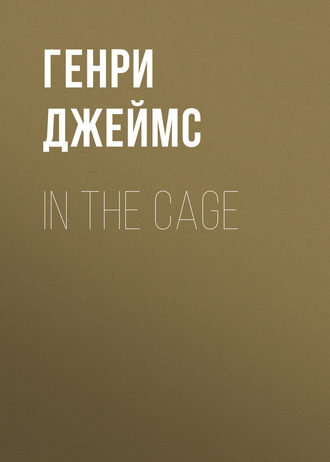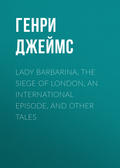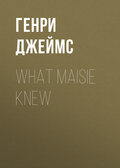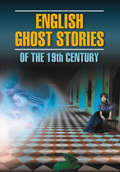
Генри Джеймс
In the Cage
CHAPTER XXIV
If life at Cocker’s, with the dreadful drop of August, had lost something of its savour, she had not been slow to infer that a heavier blight had fallen on the graceful industry of Mrs. Jordan.
With Lord Rye and Lady Ventnor and Mrs. Bubb all out of town, with the blinds down on all the homes of luxury, this ingenious woman might well have found her wonderful taste left quite on her hands. She bore up, however, in a way that began by exciting much of her young friend’s esteem; they perhaps even more frequently met as the wine of life flowed less free from other sources, and each, in the lack of better diversion, carried on with more mystification for the other an intercourse that consisted not a little in peeping out and drawing back. Each waited for the other to commit herself, each profusely curtained for the other the limits of low horizons. Mrs. Jordan was indeed probably the more reckless skirmisher; nothing could exceed her frequent incoherence unless it was indeed her occasional bursts of confidence. Her account of her private affairs rose and fell like a flame in the wind—sometimes the bravest bonfire and sometimes a handful of ashes. This our young woman took to be an effect of the position, at one moment and another, of the famous door of the great world. She had been struck in one of her ha’penny volumes with the translation of a French proverb according to which such a door, any door, had to be either open or shut; and it seemed part of the precariousness of Mrs. Jordan’s life that hers mostly managed to be neither. There had been occasions when it appeared to gape wide—fairly to woo her across its threshold; there had been others, of an order distinctly disconcerting, when it was all but banged in her face. On the whole, however, she had evidently not lost heart; these still belonged to the class of things in spite of which she looked well. She intimated that the profits of her trade had swollen so as to float her through any state of the tide, and she had, besides this, a hundred profundities and explanations.
She rose superior, above all, on the happy fact that there were always gentlemen in town and that gentlemen were her greatest admirers; gentlemen from the City in especial—as to whom she was full of information about the passion and pride excited in such breasts by the elements of her charming commerce. The City men did in short go in for flowers. There was a certain type of awfully smart stockbroker—Lord Rye called them Jews and bounders, but she didn’t care—whose extravagance, she more than once threw out, had really, if one had any conscience, to be forcibly restrained. It was not perhaps a pure love of beauty: it was a matter of vanity and a sign of business; they wished to crush their rivals, and that was one of their weapons. Mrs. Jordan’s shrewdness was extreme; she knew in any case her customer—she dealt, as she said, with all sorts; and it was at the worst a race for her—a race even in the dull months—from one set of chambers to another. And then, after all, there were also still the ladies; the ladies of stockbroking circles were perpetually up and down. They were not quite perhaps Mrs. Bubb or Lady Ventnor; but you couldn’t tell the difference unless you quarrelled with them, and then you knew it only by their making-up sooner. These ladies formed the branch of her subject on which she most swayed in the breeze; to that degree that her confidant had ended with an inference or two tending to banish regret for opportunities not embraced. There were indeed tea-gowns that Mrs. Jordan described—but tea-gowns were not the whole of respectability, and it was odd that a clergyman’s widow should sometimes speak as if she almost thought so. She came back, it was true, unfailingly to Lord Rye, never, evidently, quite losing sight of him even on the longest excursions. That he was kindness itself had become in fact the very moral it all pointed—pointed in strange flashes of the poor woman’s nearsighted eyes. She launched at her young friend portentous looks, solemn heralds of some extraordinary communication. The communication itself, from week to week, hung fire; but it was to the facts over which it hovered that she owed her power of going on. “They are, in one way and another,” she often emphasised, “a tower of strength”; and as the allusion was to the aristocracy the girl could quite wonder why, if they were so in “one way,” they should require to be so in two. She thoroughly knew, however, how many ways Mrs. Jordan counted in. It all meant simply that her fate was pressing her close. If that fate was to be sealed at the matrimonial altar it was perhaps not remarkable that she shouldn’t come all at once to the scratch of overwhelming a mere telegraphist. It would necessarily present to such a person a prospect of regretful sacrifice. Lord Rye—if it was Lord Rye—wouldn’t be “kind” to a nonentity of that sort, even though people quite as good had been.
One Sunday afternoon in November they went, by arrangement, to church together; after which—on the inspiration of the moment the arrangement had not included it—they proceeded to Mrs. Jordan’s lodging in the region of Maida Vale. She had raved to her friend about her service of predilection; she was excessively “high,” and had more than once wished to introduce the girl to the same comfort and privilege. There was a thick brown fog and Maida Vale tasted of acrid smoke; but they had been sitting among chants and incense and wonderful music, during which, though the effect of such things on her mind was great, our young lady had indulged in a series of reflexions but indirectly related to them. One of these was the result of Mrs. Jordan’s having said to her on the way, and with a certain fine significance, that Lord Rye had been for some time in town. She had spoken as if it were a circumstance to which little required to be added—as if the bearing of such an item on her life might easily be grasped. Perhaps it was the wonder of whether Lord Rye wished to marry her that made her guest, with thoughts straying to that quarter, quite determine that some other nuptials also should take place at Saint Julian’s. Mr. Mudge was still an attendant at his Wesleyan chapel, but this was the least of her worries—it had never even vexed her enough for her to so much as name it to Mrs. Jordan. Mr. Mudge’s form of worship was one of several things—they made up in superiority and beauty for what they wanted in number—that she had long ago settled he should take from her, and she had now moreover for the first time definitely established her own. Its principal feature was that it was to be the same as that of Mrs. Jordan and Lord Rye; which was indeed very much what she said to her hostess as they sat together later on. The brown fog was in this hostess’s little parlour, where it acted as a postponement of the question of there being, besides, anything else than the teacups and a pewter pot and a very black little fire and a paraffin lamp without a shade. There was at any rate no sign of a flower; it was not for herself Mrs. Jordan gathered sweets. The girl waited till they had had a cup of tea—waited for the announcement that she fairly believed her friend had, this time, possessed herself of her formally at last to make; but nothing came, after the interval, save a little poke at the fire, which was like the clearing of a throat for a speech.
CHAPTER XXV
“I think you must have heard me speak of Mr. Drake?” Mrs. Jordan had never looked so queer, nor her smile so suggestive of a large benevolent bite.
“Mr. Drake? Oh yes; isn’t he a friend of Lord Rye?”
“A great and trusted friend. Almost—I may say—a loved friend.”
Mrs. Jordan’s “almost” had such an oddity that her companion was moved, rather flippantly perhaps, to take it up. “Don’t people as good as love their friends when they I trust them?”
It pulled up a little the eulogist of Mr. Drake. “Well, my dear, I love you—”
“But you don’t trust me?” the girl unmercifully asked.
Again Mrs. Jordan paused—still she looked queer. “Yes,” she replied with a certain austerity; “that’s exactly what I’m about to give you rather a remarkable proof of.” The sense of its being remarkable was already so strong that, while she bridled a little, this held her auditor in a momentary muteness of submission. “Mr. Drake has rendered his lordship for several years services that his lordship has highly appreciated and that make it all the more—a—unexpected that they should, perhaps a little suddenly, separate.”
“Separate?” Our young lady was mystified, but she tried to be interested; and she already saw that she had put the saddle on the wrong horse. She had heard something of Mr. Drake, who was a member of his lordship’s circle—the member with whom, apparently, Mrs. Jordan’s avocations had most happened to throw her. She was only a little puzzled at the “separation.” “Well, at any rate,” she smiled, “if they separate as friends—!”
“Oh his lordship takes the greatest interest in Mr. Drake’s future. He’ll do anything for him; he has in fact just done a great deal. There must, you know, be changes—!”
“No one knows it better than I,” the girl said. She wished to draw her interlocutress out. “There will be changes enough for me.”
“You’re leaving Cocker’s?”
The ornament of that establishment waited a moment to answer, and then it was indirect. “Tell me what you’re doing.”
“Well, what will you think of it?”
“Why that you’ve found the opening you were always so sure of.”
Mrs. Jordan, on this, appeared to muse with embarrassed intensity. “I was always sure, yes—and yet I often wasn’t!”
“Well, I hope you’re sure now. Sure, I mean, of Mr. Drake.”
“Yes, my dear, I think I may say I am. I kept him going till I was.”
“Then he’s yours?”
“My very own.”
“How nice! And awfully rich?” our young woman went on.
Mrs. Jordan showed promptly enough that she loved for higher things. “Awfully handsome—six foot two. And he has put by.”
“Quite like Mr. Mudge, then!” that gentleman’s friend rather desperately exclaimed.
“Oh not quite!” Mr. Drake’s was ambiguous about it, but the name of Mr. Mudge had evidently given her some sort of stimulus. “He’ll have more opportunity now, at any rate. He’s going to Lady Bradeen.”
“To Lady Bradeen?” This was bewilderment. “‘Going—’?”
The girl had seen, from the way Mrs. Jordan looked at her, that the effect of the name had been to make her let something out. “Do you know her?”
She floundered, but she found her feet. “Well, you’ll remember I’ve often told you that if you’ve grand clients I have them too.”
“Yes,” said Mrs. Jordan; “but the great difference is that you hate yours, whereas I really love mine. Do you know Lady Bradeen?” she pursued.
“Down to the ground! She’s always in and out.”
Mrs. Jordan’s foolish eyes confessed, in fixing themselves on this sketch, to a degree of wonder and even of envy. But she bore up and, with a certain gaiety, “Do you hate her?” she demanded.
Her visitor’s reply was prompt. “Dear no!—not nearly so much as some of them. She’s too outrageously beautiful.”
Mrs. Jordan continued to gaze. “Outrageously?”
“Well, yes; deliciously.” What was really delicious was Mrs. Jordan’s vagueness. “You don’t know her—you’ve not seen her?” her guest lightly continued.
“No, but I’ve heard a great deal about her.”
“So have I!” our young lady exclaimed.
Jordan looked an instant as if she suspected her good faith, or at least her seriousness. “You know some friend—?”
“Of Lady Bradeen’s? Oh yes—I know one.”
“Only one?”
The girl laughed out. “Only one—but he’s so intimate.”
Mrs. Jordan just hesitated. “He’s a gentleman?”
“Yes, he’s not a lady.”
Her interlocutress appeared to muse. “She’s immensely surrounded.”
“She will be—with Mr. Drake!”
Mrs. Jordan’s gaze became strangely fixed. “Is she very good-looking?”
“The handsomest person I know.”
Mrs. Jordan continued to brood. “Well, I know some beauties.” Then with her odd jerkiness: “Do you think she looks good?”
“Because that’s not always the case with the good-looking?”—the other took it up. “No, indeed, it isn’t: that’s one thing Cocker’s has taught me. Still, there are some people who have everything. Lady Bradeen, at any rate, has enough: eyes and a nose and a mouth, a complexion, a figure—”
“A figure?” Mrs. Jordan almost broke in.
“A figure, a head of hair!” The girl made a little conscious motion that seemed to let the hair all down, and her companion watched the wonderful show. “But Mr. Drake is another—?”
“Another?”—Mrs. Jordan’s thoughts had to come back from a distance.
“Of her ladyship’s admirers. He’s ‘going,’ you say, to her?”
At this Mrs. Jordan really faltered. “She has engaged him.”
“Engaged him?”—our young woman was quite at sea.
“In the same capacity as Lord Rye.”
“And was Lord Rye engaged?”
CHAPTER XXVI
Mrs. Jordan looked away from her now—looked, she thought, rather injured and, as if trifled with, even a little angry. The mention of Lady Bradeen had frustrated for a while the convergence of our heroine’s thoughts; but with this impression of her old friend’s combined impatience and diffidence they began again to whirl round her, and continued it till one of them appeared to dart at her, out of the dance, as if with a sharp peck. It came to her with a lively shock, with a positive sting, that Mr. Drake was—could it be possible? With the idea she found herself afresh on the edge of laughter, of a sudden and strange perversity of mirth. Mr. Drake loomed, in a swift image, before her; such a figure as she had seen in open doorways of houses in Cocker’s quarter—majestic, middle-aged, erect, flanked on either side by a footman and taking the name of a visitor. Mr. Drake then verily was a person who opened the door! Before she had time, however, to recover from the effect of her evocation, she was offered a vision which quite engulfed it. It was communicated to her somehow that the face with which she had seen it rise prompted Mrs. Jordan to dash, a bit wildly, at something, at anything, that might attenuate criticism. “Lady Bradeen’s re-arranging—she’s going to be married.”
“Married?” The girl echoed it ever so softly, but there it was at last.
“Didn’t you know it?”
She summoned all her sturdiness. “No, she hasn’t told me.”
“And her friends—haven’t they?”
“I haven’t seen any of them lately. I’m not so fortunate as you.”
Mrs. Jordan gathered herself. “Then you haven’t even heard of Lord Bradeen’s death?”
Her comrade, unable for a moment to speak, gave a slow headshake. “You know it from Mr. Drake?” It was better surely not to learn things at all than to learn them by the butler.
“She tells him everything.”
“And he tells you—I see.” Our young lady got up; recovering her muff and her gloves she smiled. “Well, I haven’t unfortunately any Mr. Drake. I congratulate you with all my heart. Even without your sort of assistance, however, there’s a trifle here and there that I do pick up. I gather that if she’s to marry any one it must quite necessarily be my friend.”
Mrs. Jordan was now also on her feet. “Is Captain Everard your friend?”
The girl considered, drawing on a glove. “I saw, at one time, an immense deal of him.”
Mrs. Jordan looked hard at the glove, but she hadn’t after all waited for that to be sorry it wasn’t cleaner. “What time was that?”
“It must have been the time you were seeing so much of Mr. Drake.” She had now fairly taken it in: the distinguished person Mrs. Jordan was to marry would answer bells and put on coals and superintend, at least, the cleaning of boots for the other distinguished person whom she might—well, whom she might have had, if she had wished, so much more to say to. “Good-bye,” she added; “good-bye.”
Mrs. Jordan, however, again taking her muff from her, turned it over, brushed it off and thoughtfully peeped into it. “Tell me this before you go. You spoke just now of your own changes. Do you mean that Mr. Mudge—?”
“Mr. Mudge has had great patience with me—he has brought me at last to the point. We’re to be married next month and have a nice little home. But he’s only a grocer, you know”—the girl met her friend’s intent eyes—“so that I’m afraid that, with the set you’ve got into, you won’t see your way to keep up our friendship.”
Mrs. Jordan for a moment made no answer to this; she only held the muff up to her face, after which she gave it back. “You don’t like it. I see, I see.”
To her guest’s astonishment there were tears now in her eyes. “I don’t like what?” the girl asked.
“Why my engagement. Only, with your great cleverness,” the poor lady quavered out, “you put it in your own way. I mean that you’ll cool off. You already have—!” And on this, the next instant, her tears began to flow. She succumbed to them and collapsed; she sank down again, burying her face and trying to smother her sobs.
Her young friend stood there, still in some rigour, but taken much by surprise even if not yet fully moved to pity. “I don’t put anything in any ‘way,’ and I’m very glad you’re suited. Only, you know, you did put to me so splendidly what, even for me, if I had listened to you, it might lead to.”
Mrs. Jordan kept up a mild thin weak wail; then, drying her eyes, as feebly considered this reminder. “It has led to my not starving!” she faintly gasped.
Our young lady, at this, dropped into the place beside her, and now, in a rush, the small silly misery was clear. She took her hand as a sign of pitying it, then, after another instant, confirmed this expression with a consoling kiss. They sat there together; they looked out, hand in hand, into the damp dusky shabby little room and into the future, of no such very different suggestion, at last accepted by each. There was no definite utterance, on either side, of Mr. Drake’s position in the great world, but the temporary collapse of his prospective bride threw all further necessary light; and what our heroine saw and felt for in the whole business was the vivid reflexion of her own dreams and delusions and her own return to reality. Reality, for the poor things they both were, could only be ugliness and obscurity, could never be the escape, the rise. She pressed her friend—she had tact enough for that—with no other personal question, brought on no need of further revelations, only just continued to hold and comfort her and to acknowledge by stiff little forbearances the common element in their fate. She felt indeed magnanimous in such matters; since if it was very well, for condolence or reassurance, to suppress just then invidious shrinkings, she yet by no means saw herself sitting down, as she might say, to the same table with Mr. Drake. There would luckily, to all appearance, be little question of tables; and the circumstance that, on their peculiar lines, her friend’s interests would still attach themselves to Mayfair flung over Chalk Farm the first radiance it had shown. Where was one’s pride and one’s passion when the real way to judge of one’s luck was by making not the wrong but the right comparison? Before she had again gathered herself to go she felt very small and cautious and thankful. “We shall have our own house,” she said, “and you must come very soon and let me show it you.”
“We shall have our own too,” Mrs. Jordan replied; “for, don’t you know? he makes it a condition that he sleeps out?”
“A condition?”—the girl felt out of it.
“For any new position. It was on that he parted with Lord Rye. His lordship can’t meet it. So Mr. Drake has given him up.”
“And all for you?”—our young woman put it as cheerfully as possible.
“For me and Lady Bradeen. Her ladyship’s too glad to get him at any price. Lord Rye, out of interest in us, has in fact quite made her take him. So, as I tell you, he will have his own establishment.”
Mrs. Jordan, in the elation of it, had begun to revive; but there was nevertheless between them rather a conscious pause—a pause in which neither visitor nor hostess brought out a hope or an invitation. It expressed in the last resort that, in spite of submission and sympathy, they could now after all only look at each other across the social gulf. They remained together as if it would be indeed their last chance, still sitting, though awkwardly, quite close, and feeling also—and this most unmistakeably—that there was one thing more to go into. By the time it came to the surface, moreover, our young friend had recognised the whole of the main truth, from which she even drew again a slight irritation. It was not the main truth perhaps that most signified; but after her momentary effort, her embarrassment and her tears Mrs. Jordan had begun to sound afresh—and even without speaking—the note of a social connexion. She hadn’t really let go of it that she was marrying into society. Well, it was a harmless compensation, and it was all the prospective bride of Mr. Mudge had to leave with her.







